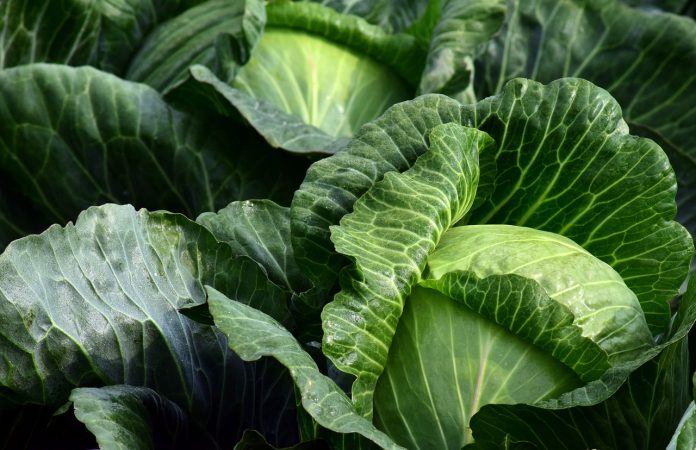
As June begins and the summer is truly around the corner, many will be thinking about ways to encourage their children to enjoy the wonders of outside. As a child, many of us can remember playing in the dirt (or maybe even mud), chasing the bugs that help us in so many ways and spending time with friends talking about something new we learned. As the world changes, it’s important to stop and remember the great things we did as children and allow our children to experience this same wonder.
As lovers of the outdoors and gardening, it is our responsibility to ensure that every generation experiences the joy of gardening, so we would like to share some simple ways to encourage any young gardeners in our community and beyond to stick their hands in the dirt and plant a little seed to encourage that growth of knowledge. We hope that you will try one or two of these ideas with your children and give them a great head start to gardening.
In a world filled with many distractions, we know it’s important to find ideas with results that can happen quickly to really encourage any child to learn about growing vegetables or flowers or even how to reuse food. We hope that at least one of the ideas below will work for your family, but if you need more ideas and want to talk we are always happy to share more ideas and find something really fun for every family. All these plants are common around the household, easy to grow and grow quickly.
Most parents probably experience that time when a child doesn’t want to eat their vegetables, so it seems like a great place to start. Let’s grow a salad to have with dinner.
Lettuce in the garden is a cool weather crop, growing best in the early and late growing season. Indoors lettuce can be a year-round adventure that you can harvest anytime. Using a variety of lettuces with different colours and shapes is a great way to encourage young children to be okay with trying different foods without fear. Lettuce can germinate in 7 to 10 days indoors and can be planted in a variety of pots. Lettuce should be kept in a cooler spot in the home where the soil temperature will stay around 10-20 degrees.
Loose leaf lettuces are best for a young home gardener as they can be harvested as ready and added to the dinner plate fresh. Red deer tongue is a wonderful loose-leaf lettuce with red painted leaves, salad bowl has an excellent non-bitter taste, and for a little fun try the 6″ tall lettuce Little Gem. These are only examples of some lettuces to try, so if you see a packet of your favourite type of lettuce or a packet of a type you think looks fun give it a go. Our favourite type of lettuce comes from seeds that our friends and family share with us. It’s a great way to try something new and save a few dollars.
Loose leaf lettuce is a great grower any time of year and can be grown in the summer and winter. Using clam shell packages or any other reusable container that can have drainage added is a great way to encourage growing food and recycling. For the family that is really excited about having fresh lettuce even in the middle of December, a humidity dome can be purchased for less than $15.00 from many vendors. With your favourite soil, or seed sprouting pods, you can have fresh added to your dinner plate anytime of the year.
Be sure to have your child share harvested lettuce with family by having it on the burger (or veggie burger) during the next barbecue or used in sandwiches for the next family picnic or even an everyday lunch. Imagine how much fun your child will have letting everyone know that they grew their own food, sharing it with others and the joy it will bring when they see others enjoying it.
For the family that enjoys flowers a great plant for children to grow is Morning Glory. The speed at which this plant germinates will make any child excited seeing it grow and the delicate flowers that open each day are sure to delight. Morning Glory are vigorous climbers, and can self-seed easily so be sure to choose a place for them be planted outdoors wisely. A planter box that is just for morning glory is a great way to contain these great smelling flowers and gives any child a sense of pride knowing they have their own little garden space.
Morning glory blooms last for a day making it fun to watch each bloom’s progress. They can flower from summer until frost and climb over any structure that can be provided. These low maintenance flowers are a great starter to get children interested in gardening.
For the parent that wants to mix it up a little, add some Moonflowers to the morning glory planter. An annual white flower that looks similar to a morning glory, it blooms in the evening giving mom and dad a lovely fragrance of lemon as they open. A great mystery for young children as they look like morning glory flowers, but are closed during the day, the moonflower adds a little mystery to the garden. Many stories of fairy houses that close during the day have inspired young children to want to know more about this fast growing but secretive (to anyone in bed before 8:00pm) plant.
Morning glory and moonflower are both annual plants in our climate and can grow up a trellis or other structure. A warm location close to the house helps these beautiful flowers enjoy our summer weather but can be started indoors with germination happening in 7 – 10 days. With large leaves these sprouts are easy to see once they pop their heads out of the soil.
No matter how young or old you are, seeing a vegetable be regrown is truly an amazing thing. If your family is having a delicious dinner with green onions sometime soon, we encourage you to keep the green onion roots and regrow them. This is a fast and amazing way to inspire a young gardener.
Have your child place the roots of some left over green onions in a small glass of water and ask them what they think will happen. Within 7-10 days your child will have a whole new batch of green onions ready to be used for garnish or your favourite recipe. The water should be changed once during the week, but no other care is necessary. The long green stems grow so quickly new growth can be seen every day. While green onion is not the only vegetable that can be regrown this way, it is by far the fastest and will be sure to surprise everyone in the home.
Many vegetables can be regrown in the kitchen from scraps that we would normally add to the compost bin. Leeks, celery, garlic, and even lettuce can have more life and opportunity to add delicious flavour to your recipes. With just a little bit of space and an encouraging word you could have home grown vegetables from the young gardener in your home.
These are just a few simple ideas to help you share the joys of growing with your children.
Happy June and Happy Father’s Day.
The Cedarbrae Community Gardens
Darrell Ogden









